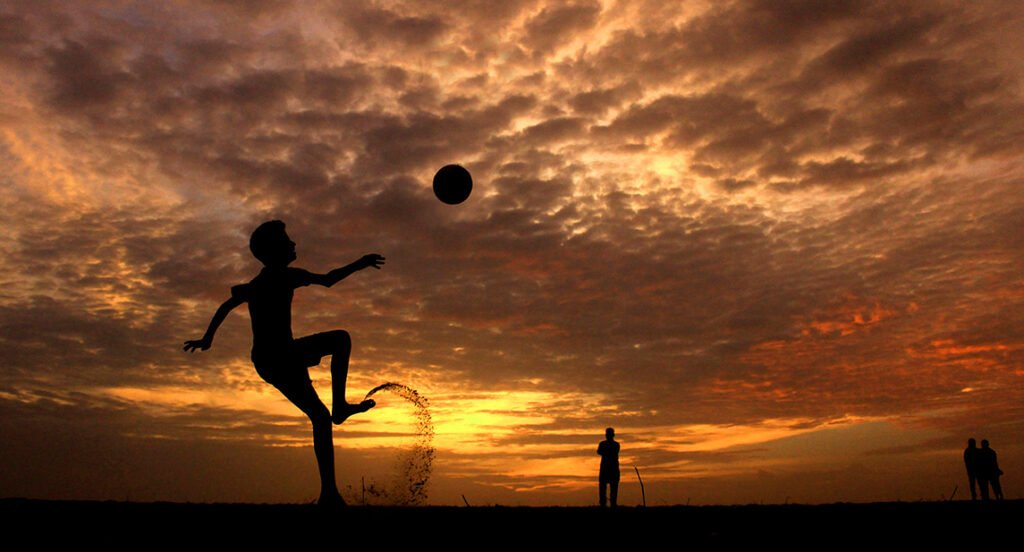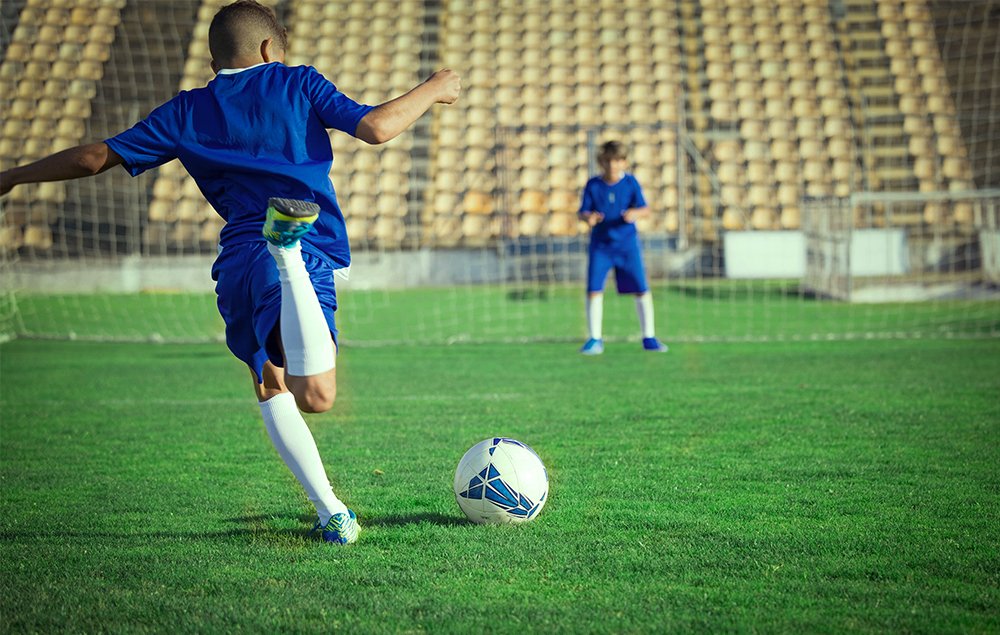What a world we live in. Gone are the days when the mere thought of stepping outdoors for sports would fill children with excitement. Nowadays, it’s the latest gadgets and consoles that captivate their attention, entangling them in a web of digital distraction. But, in the middle of this digital rush, have we forgotten the value of physical and mental health that sports provide for our children?
Playing sports while you’re young has several advantages that promote personal development and well-being. But all too frequently, I’ve seen parents disregard the importance of physical activity and instead place their children’s academic goals first. It’s a confusing situation to deprive kids the basic pleasures of play and sports in their early years and then expect them to negotiate the world of work and responsibilities later in life.
It’s time to reconsider our priorities and rediscover the importance of sports in our children’s lives. Let’s not rob them of the opportunity to develop essential life skills, build resilience, and forge lifelong friendships on the playground. Instead, let’s inspire kids to enjoy the benefits of physical activity, building the groundwork for a healthier, happier future.
Physical Fitness and Health
One of the most evident benefits of sports for children is the improvement in physical fitness. Whether it’s running, jumping, swimming, or kicking a ball, sports offer opportunities for children to develop strength, agility, coordination, and cardiovascular endurance. Regular involvement in sports not only combats childhood obesity and other health concerns, but also lays the groundwork for a lifetime of good behaviors.
Children who enjoy sports will inevitably want to play every day, creating a positive habit that benefits their overall health. How would kids pass their time if there were no sports in their life? They are not going to spend the entire day studying. They would probably use digital gadgets instead, maybe consuming stuff that isn’t as healthy as sports. Long stretches of time spent sitting still or being inactive might be detrimental to their growth and well-being.
Social Interaction and Teamwork
Playing team sports develops social and interpersonal skills that are vital for success in both the personal and professional spheres in addition to increasing physical health. Children gain important life skills in collaboration, teamwork, decision making, and communication as they work together to achieve a common objective.
In team sports, participants may see and learn from each other’s special skills and tactics, which promotes a culture of progress and growth. This sportsmanship, which is cultivated via shared experiences on the field, carries over into the classroom and the workplace, among other spheres of life.
In team sports, it’s like a mini version of the real world. You’ve got leaders, different players taking on different roles, and everyone working together towards a common goal. Good teamwork means being able to talk things out, stay focused, and make quick decisions – skills that come in handy not just on the field, but in everyday life too.

Discipline and Self-Confidence
Sports help kids learn discipline and boost their confidence big time. When they’re passionate about their favorite sport, you bet they’re going to put in the work and the effort. They’re out there practicing every chance they get, soaking up knowledge from the pros, and really grinding to get better.
Through all the ups and downs of training and games, they’re building up grit and mental toughness. They’re learning to bounce back from setbacks with a never-give-up attitude. And you know what? That mind-set doesn’t just stay on the field. It carries over to everything else in life.
When they score those wins in sports, it’s like an adrenaline shot for confidence. It gives them that swagger to tackle any challenge that comes their way, whether it’s on the field or off it.
Emotional Well-Being and Stress Relief
I still vividly recall my childhood days, spent with my group of friends, playing together. Those moments were truly special and unforgettable. While we certainly had our fair share of competition, what I cherish the most are the shared moments of laughter and joy.
Engaging in sports isn’t just about the game; it’s a constructive outlet for stress and pent-up energy. Physical activity triggers the release of endorphins, the body’s natural mood lifters, leaving us feeling happier and more content. Moreover, the camaraderie and support of teammates, coupled with the excitement of competition, provide emotional support and a sense of belonging. These bonds help shield us from feelings of loneliness and isolation, making sports more than just a pastime—it’s a source of lasting memories and friendships.
Role Models in Sports for Children
Have you ever seen how children look up to their favourite athletes? It’s not only that they have fantastic ball-kicking and basket-shooting skills. It’s all about the package: their abilities, their sense of style, and their unique focused mentality.
But here’s the thing: if kids didn’t have sports heroes to look up to, who would they turn to? Probably those internet pranksters or influencers who spend their days goofing off. And let’s be real, that’s not exactly the kind of role model we want for our kids.
Considering who our children are looking up to is crucial for this reason. We want someone who is not just gifted but also diligent and committed to their job to be someone they can look up to. Someone who motivates them to reach their full potential on and off the field.

Life Skills and Values
Sports aren’t just about running around and making friends (although that’s definitely part of it). They teach us some pretty important life lessons too. Like being a good sport, following the rules, and managing our time. And let’s not forget about dealing with wins and losses—sometimes, it’s tough!
Now, not every kid is going to jump at the chance to shake hands after losing a game. Some might take it a bit harder than others. But that’s where we come in as the older, wiser ones. We can show them how to bounce back stronger, while still keeping that competitive fire burning in a positive way.
These skills they learn on the field or court? They’re not just for the game. They set kids up to be responsible, respectful, and all-around awesome human beings. So, as parents and elders, let’s cheer them on, both on and off the field, and watch them grow into amazing individuals who know how to play hard and play fair.
